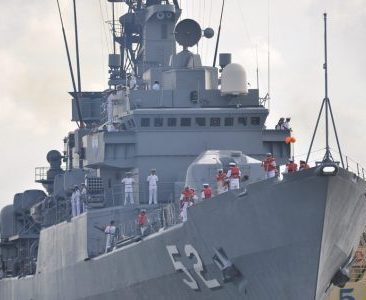The United States Deparment of Navy, Financial Systems Services (FSS) contracted with Technik to provide the Navy N10 Budget Analysis team with project management, technical design, application development, documentation and maintenance/support for ongoing FSS operations in the areas of budget generation and obligation management. The scope also includes: performance changes/modifications to existing Automated Budgeting System (ABS) /Personnel Command Schedule (PCS) systems and Budget Obligation and Tracking Systems (BOATS) applications in the form of SCRs; the migration of the BOATS application code into VB.NET; and finally the end-to-end integration of ABS/PCS and BOATS into Navy Marine Corp Intranet (NMCI).
Project Accomplishments
Project accomplishments and associated activities are described below.
Task 1: Support N10 Analysts with current manual processes/functions requiring automation. Since 2006, Technik provides support and maintenance for the BOATS and ABS/PCS applications. Technik provides complete offsite support during, and outside of, the analysts’ standard scheduled work hours. Technik often provides hands-on onsite support to the budget analysts as they perform their duties and has assisted with the generation, adjustment, and change tracking and reporting of budget data. This service provides Technik with an in depth knowledge of the systems, data, and processes that is required in giving excellent assistance to analysts. Technik follows an industry leading SDLC model customized to the needs of N10 which has successfully supported the completion of 87 SCRs on the existing systems. For each SCR Technik provides a detailed analysis of the client’s needs and translates those needs, into software requirements which are then used to develop, test, and deploy enhanced capabilities into the production application.
Task 2: Perform Discovery of Requirements and Design modifications. Technik has successfully performed discovery of requirements and design for 87 SCRs since Oct 2006. Technik works directly with the N10 program manager and budget analysts to expand the capabilities of the existing applications, often making recommendations for further enhancements to improve the functionality and usability of the applications. When the client approves a change request or other work order, we begin with a requirements gathering process. As part of this process, Technik interviews management and the analysts responsible for the data or function to be automated, observes as the analyst performs routine processes/tasks, and finishes by generating a Functional Requirements Document (FRD). Once the N10 program manager approves the FRD, Technik converts the approved requirements into a system design and architecture document through multiple Joint Application Design (JAD) sessions with the program manager and the budget analysts.
Task 3: Provide assistance and training to the N10 staff on the use and maintenance of new modifications. Upon delivering all new modifications (including the recent release of Custom Queries, User Account Administration, and SAF Code Administration modules) Technik provides hands-on training and assistance in the use, processing functions, and maintenance of the new application module to N10 staff, including delivery of a user manual.
Task 4: Update all existing system documentation to reflect the addition of modifications, enhancements, and new modules to the production environment. During the SDLC, draft documents are generated to reflect the expected modifications. Once the new modification is moved into the production environment, Technik finalizes each document to reflect exactly what was added/changed during the modification. In this effort, Technik has updated and delivered final versions of existing documentation to reflect newly implemented functionality which now operates within the production environment including: FRDs, Design Documents, User Test Documents, and User Manuals.
Task 5: ABS/PCS and BOATS Application Development, Maintenance and Support. Over the span of 87 system change requests, Technik has successfully provided business analysis, application architecture/design, development, testing, and rollout and maintenance support in accordance with our SDLC process customized for the Navy. These SCRs were done upon modification approval by the N10 PM in accordance with N10 SOPs and regulations. As a part of our extended support, we have provided on-site support to the analysts during each of the three budget phases each year.
Task 6: Incorporate modifications, changes, and enhancements into the production versions of the ABS/PCS and BOATS systems. Every System Change during the development of completely new modules (i.e. Custom Queries and Status of Funds in BOATS) goes through developer unit testing and client acceptance testing prior to being rolled into the production environment.
Task 7: Project Management and Reporting Requirements: schedule and delivery instructions, monthly narrative reports, and task summary reports. Technik has provided a base lined Microsoft Project Schedule and conducted monthly In Progress Reviews with the N10 PM since Oct 2006. An electronic copy of the IPR (cd format) is provided to the N10 PM for signature.
Task 8: Application Testing: We perform unit and integration testing of our source code and prototype applications. Navy Budget Analysts perform end user acceptance testing. Deliverables include: test plans, test results and acceptance results.
Task 9: Training: Technik provided training support in the operation of the FINSYS applications
Task 10: Performance Metrics/ Criteria for Acceptance. Performance Measures Reports were submitted as a part of the monthly IPRs. Criteria for acceptance included timeliness, accuracy of data and crosscheck to monthly task summary reports, narratives, staffing/vacancy reports and invoices.
Overall Performance: Excellent
Delivery: Technik adhered to all deadlines and produced deliverables in a timely manner.
Cost Control: Technik performed within cost and budget.
Corrective Actions Taken: None
Technologies Used
Technologies used include: .Net, SQL Server, Web Services, Team Foundation Server
